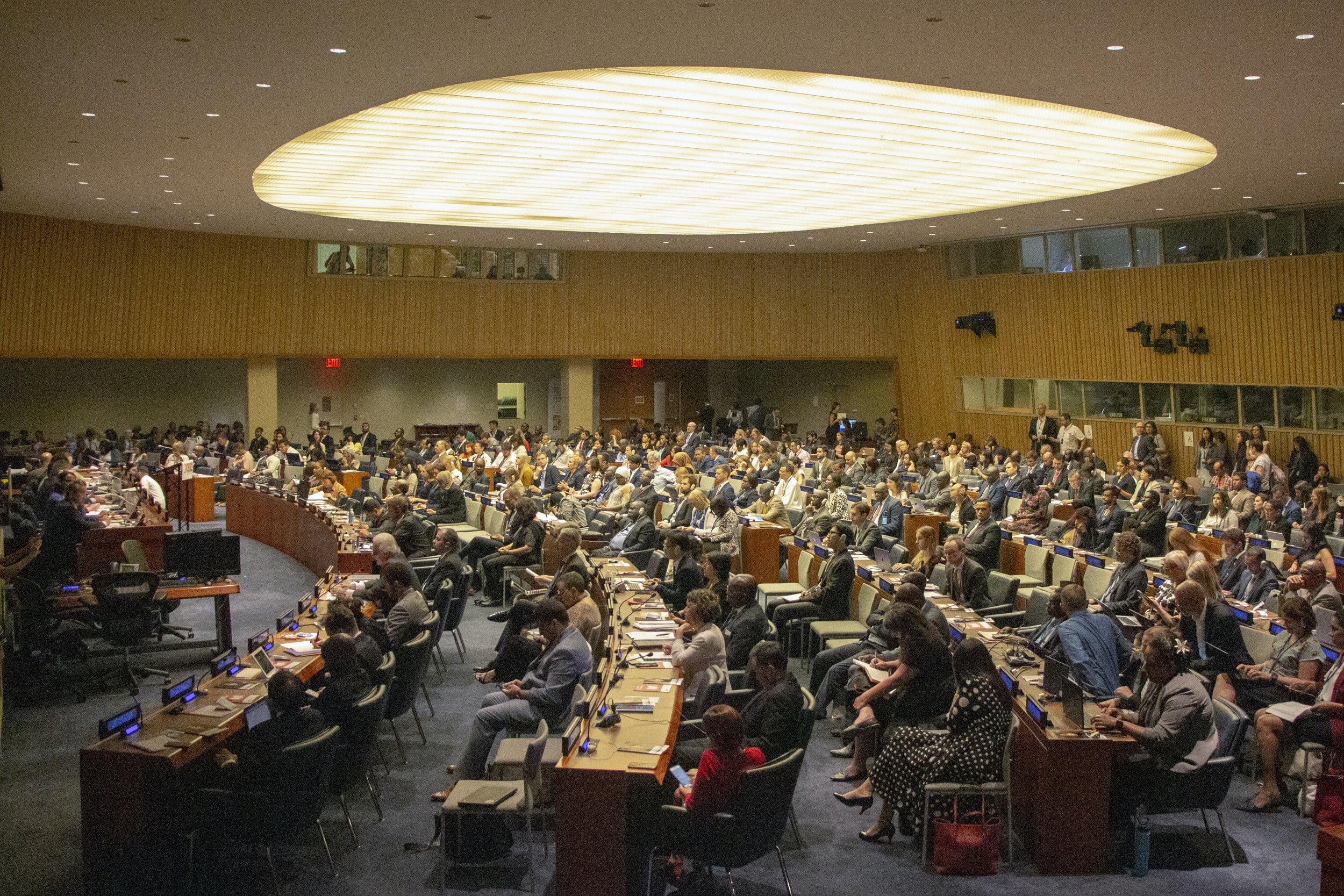Editorial

Public Health Policy Implications for the Legalization of Cannabis in Canada
On October 17th, 2018, marijuana was legalized in Canada. Despite its popularity amongst citizens, discussions surrounding marijuana and its public health policies are lacking…

Defining WHO’s Stance on “Health Equity”: Potential Goal of the 72nd World Health Assembly
When we think about global health, the World Health Organization (WHO) is inarguably one of the most prominent players. Acting as the specialized health agency of the United Nations, the WHO operates across a broad array of areas…

Food Insecurity as Social Determinant of Health: The Case for a Canadian National School Lunch Program
School lunch programs ought be considered as a valuable strategy for mitigating food insecurity, reducing the impacts of poverty, and more specifically, improving health outcomes in vulnerable populations during the formative stages of early childhood development…

Dr. Paula Braitstein, Associate Professor at the Dalla Lana School of Public Health, Awarded 2017 CIHR-IPPH Trailblazer Award
Residing in North-Western Kenya, Dr. Braitstein received the CIHR-IPPH Trailblazer Award for her research and service to street youth in Eldoret, Kenya…

Mending the Broken Hoop: Indigenous Health and the Dis-ease of Disconnection
In 2015, Canada’s Truth and Reconciliation Commission (TRC) identified significant gaps in health outcomes between Indigenous and non-Indigenous communities…

A Community-Based Response to the Indonesian Childhood Tobacco Use Epidemic: Toronto Thinks 2016 Semi-Finalists’ Take on the Issue
In 2010, a video of a two-year old Indonesian boy who smoked over 40 cigarettes a day went viral and garnered millions of views. Though the video shocked the world, it failed to cause uproar in the boy’s homeland, where childhood tobacco use is largely viewed as a norm…

The Mountain of Youth: What We Can Learn from Okinawa, Japan
The elderly population of Okinawa, Japan has gained worldwide recognition for enjoying exceptionally long lives with autonomy even into advanced age. This phenomenon has inspired many researchers seeking to unlock the secrets of healthy aging…

“The Fight of the Moment”: Bernie Sanders on the fight to bring universal health care to the United States
On Sunday, October 29th, 2017, U.S. Senator Bernie Sanders (Vermont) and Dr. Danielle Martin, Associate Professor at the Institute of Health Policy, Management and Evaluation based in the Dalla Lana School of Public Health, met at Convocation Hall to discuss what lies ahead in the fight for a universal health care system in the United States…

What is ‘Global Health’?
“I’m interested in global health.” Those of us who interact with like-minded individuals, hear this often. But what does this really mean?

A Generation Condemned: The Health Implications of Brazil’s PEC 55 Reforms
It has become cliché to say that 2016 was a bad year. As far as countries go, however, one of the hardest hit by 2016 has to have been Brazil.

Interview: Will the Canadian government guarantee its citizens the right to a healthy environment?
Juxtaposition sits down with Peter Wood, the BC-based Environmental Rights Campaign Manager for the David Suzuki Foundation, to discuss the BlueDot movement. BlueDot aims to push the Canadian government to recognize the right to a healthy environment for every Canadian.

Banning “Bad” Blood: Reconsidering Blood Donation Policies
On November 4, France changed its blood donation policies by lifting the lifetime ban that prevented men who have sex with men (MSM) from donating blood. In 2016, MSM will be able to donate blood and plasma if they have not engaged in sexual activity with another man for 12 months and 4 months respectively…

But is it Safe?
Deadly, dangerous, ineffective, unproven: four terms that no one wants to read on the back of their bottle of medication. Pharmaceutical manufacturing is the most profitable industry in the United States…

The Sick and Their Sponsors: Who Brings Patients’ Rights to the Policy Table?
Millions of people face steep barriers to receiving treatment for a wide range of diseases – from non-communicable diseases to AIDS. For many, the cost of treatment is an insurmountable obstacle that leads to preventable deaths…

Political Ideologies, Institutions, and Health: The Role of Privatization
When illness befalls us, we refer almost instinctively to questions concerning our diet, exercise, or who we last made contact with. Our search for its treatment then immediately turns to doctors and medication…

Climate Change: Our Obligations for Global Health
There is significant and increasing evidence that climate change has serious effects on health that will only exacerbate with time. The spread of vectors, such as mosquitoes and deer ticks, increases the occurrence of vector-borne diseases. More frequent extreme weather events cause accidents and injuries that tax our healthcare systems…

Introducing Vaccines: Beyond the Rhetoric
Introducing vaccines in low and middle income countries (LMICs) is a significant challenge. Besides the obstacle posed by the costs of procuring new vaccines, there are the logistical challenges of prepping existing infrastructure and prioritizing interventions to make the best of limited resources…

A Nuclear-Free Arctic: Interview with Dr. Nancy Doubleday
The Polanyi conference brought scholars together to discuss the contemporary status of nuclear weapons. One of the speakers was Dr. Nancy Doubleday, a lawyer and biologist who holds the Hope Chair of Peace and Health at McMaster University, and who has worked extensively in policy development and human rights claims in the Arctic…

A Doctor’s Plea For His Patients: An Interview with the Organizer of the National Day of Action
On June 30, 2012, the Canadian government implemented cuts to the Interim Federal Health Program (IFH) for refugees. With these changes to the IFH, Canadian refugees no longer had access to medication coverage, vision and dental care…

Social Responsibility in the Post-Antibiotic Era
Antibiotic-resistant microbes – bacteria and other microscopic entities that have acquired a complete or near-immunity to standard antimicrobial treatments – have gone under the radar for a dangerously long time. As a result we are facing a future where it is entirely possible that infections may once again become the leading cause of mortality worldwide…
